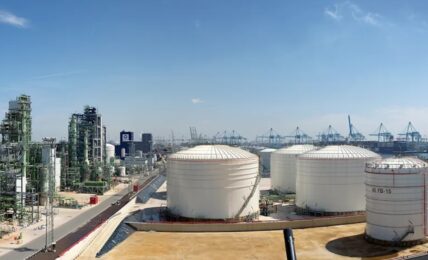Over the weekend, leaders of leading industrial nations met at the UK-hosted G7 summit, with a broad agenda ranging from COVID vaccination efforts to post-pandemic recovery and climate action. We highlight below some of the key points for ESG-focused investors and businesses. While the G7 leader’s shared agenda statement dealt primarily with high level issues, as expected, they will be relevant in outlining the policy actions likely to come out of the countries in the coming months, particularly ahead of the upcoming UN Climate Summit, COP26 in November.
While COVID vaccination and economic recovery took center stage at the summit, initiatives to mobilize finance towards tackling climate issues, and efforts to ramp up decarbonization of emission-intensive industries were also given significant attention. Notably, this was the first G7 meeting in which all participating countries have committed to achieve net zero emissions by 2050.
Sustainable finance and disclosure
On the sustainable finance front, with a goal to jointly mobilize $100 billion annually through 2025, the G7 leaders committed to increase their international public climate finance contributions. The leaders also backed private sector climate-focused initiatives to develop a green finance market, such as the recently launched Glasgow Finance Alliance for Net Zero (GFANZ), bringing together several net zero-focused financial industry alliances, including the Net Zero Asset Managers Initiative, the Net-Zero Asset Owner Alliance, and the Net Zero Banking Alliance, representing more than 160 firms, responsible for assets of over $70 trillion, as well as the Taskforce on Nature-related Financial Disclosures (TNFD), noting the potential of these initiatives to mobilize trillions of dollars towards achieving global net zero goals.
Following up on a statement from last week’s G7 meeting of Finance Ministers and Central Bank Governors, the G7 leaders also expressed their support for movement towards mandatory climate reporting, based on the Task Force on Climate-related Financial Disclosures (TCFD) framework.
Industrial climate action
Stressing a need to address the climate impact of emissions-intensive industries, the G7 leaders highlighted initiatives and actions directed towards several specific sectors. Concerning the energy industry, the leaders committed to focus efforts on increasing energy efficiency, accelerating renewable and other zero emissions energy deployment, and reducing wasteful consumption, while pledging to largely decarbonize their domestic power systems over the next several years. Additionally, the statement stated that the countries will phase out new direct government support for international carbon-intensive fossil fuel energy as soon as possible, with limited exceptions consistent with an ambitious climate neutrality pathway.
Transport sector commitments include accelerating the transition away from gas and diesel-powered vehicles, and to scaling up zero emission vehicle technologies, including buses, trains, shipping and aviation. For industrial sectors, the statement highlighted efforts to act on hard-to-decarbonize sectors such as iron and steel, cement, chemicals, and petrochemicals, with a focus on accelerating progress on electrification and batteries, hydrogen, carbon capture, usage and storage, zero emission aviation and shipping. Significantly, nuclear power was included in the list of decarbonizing technologies, “for those countries that opt to use it.”
The G7 statement also outlined climate-related actions for industries including homes and buildings, such as the promotion of sustainable heating and cooling systems, and agriculture, forestry and other land-use sectors, with policies encouraging sustainable production, the protection, conservation, and regeneration of ecosystems, and the sequestration of carbon.
Forced labor in supply chains
One of the key focus areas of the G7 statement was the issue of forced labor in supply chains. The G7 leaders committed to work collectively, domestically, and with multilateral institutions to protect individuals from forced labour and to ensure that global supply chains are free from the use of forced labour, specifically highlighting state-sponsored forced labor of vulnerable groups and minorities, in the agricultural, solar and garment industries. A U.S. White House statement specifically pointed to “the main supply chains of concern in Xinjiang.”
Click here for the full G7 Summit statement.
The post G7 Highlights for ESG Investors and Business Include Climate Finance, Sustainable Supply Chains, Energy Transition appeared first on ESG Today.


